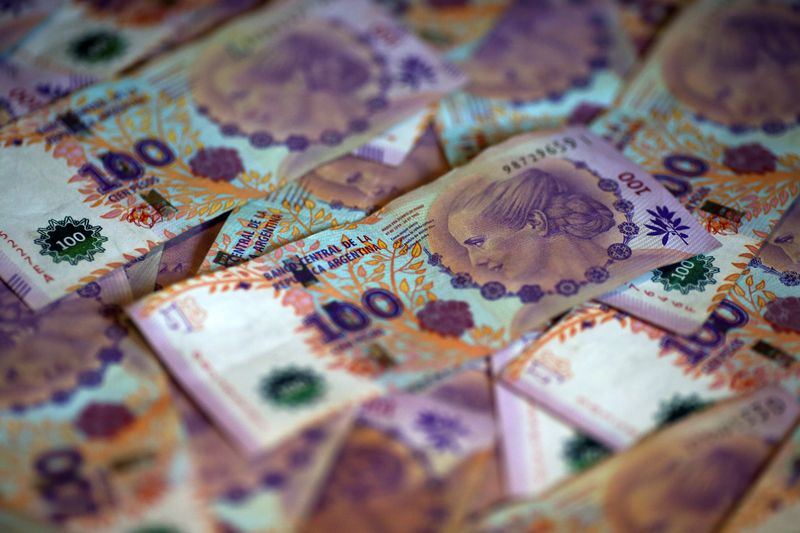By Jorge Otaola
BUENOS AIRES (Reuters) - Argentina's country risk index, a measure of the premium investors demand to hold local bonds versus equivalent U.S. debt, dropped under 900 basis points on Tuesday as investors grow more bullish on pro-market libertarian President Javier Milei.
The risk index - near 2,500 a year ago - is at its lowest level since the middle of 2019, just before Argentina plunged into a major financial crisis that tanked markets. Local bonds, long mired deep in distressed territory, have surged this year.
Milei, an outsider economist who won a shock election late last year, has turbocharged local markets with investor-friendly policies and a tough cost-cutting drive that has helped overturn an entrenched fiscal deficit and improve the state's finances.
"Another great day for markets," said analyst Salvador Di Stefano. "With country risk below 900 points, it should be acknowledged Argentina is back on its feet, despite everything."
Positive signals include the fiscal surpluses, slowing monthly inflation, backing from international lenders, rising central bank reserve accumulation and strong take-up of a scheme to bring dollar deposits back into the formal financial system.
Milei's austerity has, however, pushed up poverty levels and deepened a recession, though his government argues that it's a necessary tonic to cure longer-term economic imbalances - an argument many voters seem willing to accept for now.
A closely watched opinion poll on Monday showed that Milei's popularity jumped sharply in October after sliding the month before, an important boost to the government's ability to get things done given its small share of the seats in Congress.

"This will be another boost for assets, generating increases of two to three dollars in our target prices for dollar bonds," said local consultancy Max Capital.
"In the short term, spreads begin to look tighter, with practically no risk of default until 2027."